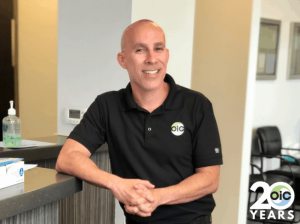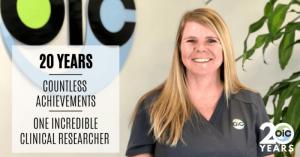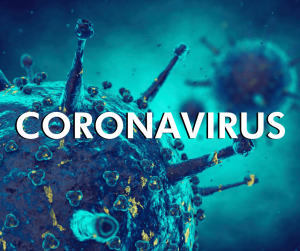COVID-19 Basic Immune Response
Just for clarification: SARS-2 is the virus that causes COVID-19. The current COVID-19 PCR test measures viral RNA. It does not measure our immune response to the virus.
Viral RNA is only found in blood with active viral infection (or for a short period of time after recovery). In fact, in theory, we should get two consecutive negative PCR tests before considering someone previously infected “non-infectious”. When someone recovers from COVID-19, the PCR shortly after becomes negative.
To determine past exposure to SARS-2 we use serologic tests, which measure our immune response to the virus. These tests, which require blood (serum) collection, are able to quantify specific IgM and IgG levels against SARS-2. So, SARS-2 IgM and IgG are antibodies that infected people produce during the course of the infection (Ig M first, followed by Ig G). These antibodies normally (in most other viral infections) are long-lasting, and could protect the body from future infection with the same virus.
Most anti-viral antibodies are protective, for example, hepatitis B IgG (or HBS Ab), which protects the body from HBV re-infection. Sometimes antibodies that the body produces after a viral infection can last for life but are not protective, such as the ones our body produces after a hepatitis C infection (thus we can get re-infected with HCV).
Currently, we can measure SARS-2 antibodies, but their utility to help in the diagnosis of acute infection or recovery are not better than the PCR. They can be used for epidemiological reasons (to find out the proportion of people already infected or susceptible).
They could potentially be used for treatment, using concentrated serum from people who recovered from the infection, to treat the acutely infected person. Think about it like the immunoglobulin shot some people get during an outbreak of hepatitis A. The validity of this approach for treatment of COVID-19 has not been well studied.
The ability of any anti-viral antibodies to protect a person later depends on various factors, such as:
- The antibody preferably needs to attach to a crucial viral part, making it unable to replicate. Sometimes the antibodies the body produces attach to a virus part that do not neutralize the virus.
- Our body needs to create a memory T-cell response that will recognize the virus later, after a future re-exposure.
- The viral surface glycoproteins, which are the sites where the antibodies attach, should not change much with time. In essence (although not quite), this is what happens after infection with the influenza virus.
It is unclear how long-lasting the antibodies produced by the body during COVID-19 are able to last or to protect the body in the future. There has been some case-reports of re-infection, which if true, it suggests that our body’s antibody production may not be fully protective after COVID-19.In reality, it is my understanding that this is yet to be elucidated.
If COVID-19 becomes a recurrent infection, SARS-2 serology tests may play a clinical role in the future. For the time being, we just don’t know yet.
By Edwin DeJesus, MD, FACP, FIDSA
More Articles
Dr. DeJesus Recognized by Orlando Magazine
For the 5th consecutive year, Dr. DeJesus has been recognized by his peers in Orlando Magazine for his work as medical director at Orlando Immunology Center. Dr. DeJesus is a graduate from the University of Puerto Rico, School of Medicine. He completed his Internal Medicine training and Infectious Disease fellowship at the Medical College of…
Read MoreJoin OIC at the 2015 AIDS Walk Orlando
Orlando Immunology Center is pleased to announce that we will again be sponsoring a team at this year’s 2015 AIDS Walk Orlando. If you are interested in joining our team or donating to this worthwhile cause, please let us know. Saturday, March 28, 2015 In Florida, 15% of all new HIV infections reported among females…
Read MoreOIC Wins Wave Award for Favorite Local Healthcare Professional
The Orlando Immunology Center (OIC) announced today they have received the Central Florida/Orlando 2015 Watermark Awards for Variety and Excellence (WAVE) Award for favorite local healthcare professional. “We see this as a huge honor and will continue to do everything in our power to help patients from all walks of life be healthy, happy and…
Read MoreBest of Luck on Your New Adventure
Best of Luck, Love Your Family We’re a family. And just like every family, we go through triumph and tragedy together – sometimes both in the same day. Today is one of those days as we wish someone we love best of luck on their new adventure. Omar Marquez, LPN, CCRC, one of our Clinical Research Coordinators,…
Read MoreWendy Reflects on Her 20 Amazing Research Years at OIC
“Incredible progress” – Wendy reflects on how much has changed in her 20 years of amazing research at OIC but adds “I’m staying until we find a cure for HIV.” Every field sees change over time, but not as much as the field of HIV. Twenty years ago there were few medications with many side effects.…
Read MoreEverything You Need To Know for Free Leaders of Color Training
Are you a person of color living with HIV and want to make a difference? Do you want to be a part of ending HIV in Orlando? Are ready to serve as a leader? Then this free leaders of color training is for you! Where: Heart of Florida United Way, 1940 Traylor Blvd., Orlando, FL 32804 When: July…
Read MoreMassive 500 Percent Increase in Prep Use; New Research
There’s been a massive 500 percent increase in PrEP. But is that enough to end HIV? New research shows a massive 500 percent increase in PrEP use to prevent HIV. During 2014 to 2017, several key aspects of HIV prevention dramatically increased. Which is great news! But these improvements were not across all groups. Moreover, only about one third…
Read MoreWhy Preventive Medical Care Matters to You
We only have one life! So live your happiest, healthiest life through prevention! What is preventive medical care? Preventive medical care is any medical service that will help prevent an emergency or chronic condition. “I’m active and feel great – I don’t need a doctor!” That’s the entire purpose! To keep you that way! It promotes an…
Read MoreHow to Easily Get Medically Prepared for a Hurricane
Getting medically prepared for a hurricane is easier than you think. But it could be even more important than your typical hurricane prep routine. Hurricanes are erratic, powerful and destructive forces of nature. In addition, they can rapidly grow stronger. Or even decrease in strength but stall bringing wind and rain for extended periods of…
Read MoreOIC COVID-19 Response
During this most difficult time, we at OIC strive to continue to take the best care of you and all the health needs of our patients. Due to the severity of the situation involving the Coronavirus (COVID-19), we have had to implement many (temporary) changes in the best interest and the safety of both our…
Read MoreFrom SOCIAL to PHYSICAL Distance
SARS-CoV-2 (SARS-2), the virus that causes COVID-19, spreads from person to person through respiratory droplets produced from an infected person, even if that person does not know he/she is already infected. Most transmissions occur during very close contact with an infected person or when an infected person coughs or sneezes around you. A six-feet parameter…
Read MoreCOVID-19 Basic Immune Response
Just for clarification: SARS-2 is the virus that causes COVID-19. The current COVID-19 PCR test measures viral RNA. It does not measure our immune response to the virus. Viral RNA is only found in blood with active viral infection (or for a short period of time after recovery). In fact, in theory, we should get…
Read MoreInterim Guidance for COVID-19 and Persons with HIV – Updated: March 20, 2020
This interim guidance reviews special considerations for persons with HIV and their health care providers in the United States regarding COVID-19. Information and data on COVID-19 are rapidly evolving. This guidance includes general information to consider. Clinicians should refer to updated sources for more specific recommendations regarding COVID-19. Guidance for all Persons with HIV In…
Read More











